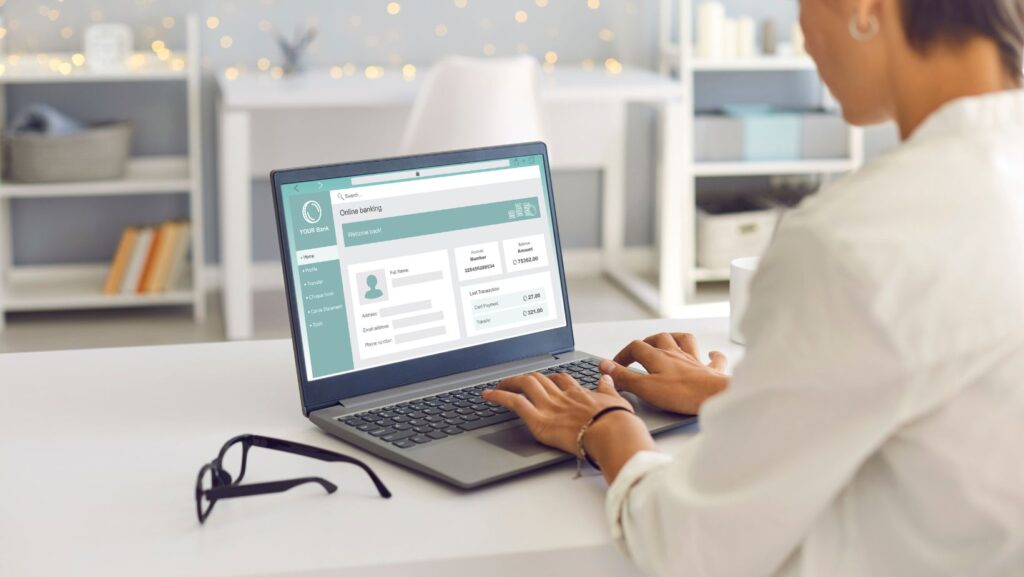As a non-US resident looking to expand your business activities into the American market, obtaining commercial banking services in the country is an important first step. However, navigating the documentation and eligibility requirements when you don’t have a local address or status can be complex. With some diligence and patience, though, securing a US business bank account from abroad is certainly feasible.
Table of Contents
ToggleApply For An Employer Identification Number
One of the initial priorities when you decide to open a US business bank account for non-residents should be applying for an Employer Identification Number (EIN). The application will be processed by the Internal Revenue Service (IRS). This unique nine-digit number essentially serves as a social security number for a corporate entity. Some banks will actually require it just to open up an account.
Thankfully, the IRS offers an accessible online application that can provide an EIN instantly after answering a few basic questions regarding the structure and activities of your business. As a non-resident without a social security number, you can select the foreign option when asked to input your taxpayer identification details. Just be sure to have key information on hand, including your personal address, principal business activities, and ownership structure, so the right EIN can be issued on the first attempt.
Research Banks Catering To International Clients
Once an EIN has been obtained, the crucial task of selecting the right financial institution to apply to comes next. Rather than going with large national chains, it is wise to directly target banks with specialized departments focused on serving foreign account holders and cross-border commercial needs. These banks will be set up internally to handle the unique documentation foreign nationals provide during account onboarding.
A few examples to investigate would be financial providers who actively promote accounts for non-US residents on their websites. When researching, inquire about any alternative state or country-specific eligibility requirements for opening accounts so you understand exactly what will be expected from someone based internationally.
In addition to traditional banks, some credit unions and smaller regional banks also offer great customer service and flexibility regarding opening accounts for overseas business owners planning US market expansion. Be sure to contact them directly to gauge their appetite for securing foreign patrons, though.
Prepare Extensive Business Documentation
With a shortlist of potential banking partners assembled, now comes the truly critical phase of preparing a professional application package that convinces financial gatekeepers your business is compliant, legitimate, and stable enough to bank with. Remember that US institutions are mandated to thoroughly vet the identity and source of funds for any new commercial customers these days–domestic or not.
Essential documents to include are your business registration papers filed in your home country, proof of ownership/partnership structure, detailed customer invoices and financial statements illustrating the firm’s activities for at least the past year, and a clear description of what transactions will flow through the US account. Corporate operating agreements plus an overview of company executives and beneficial owners should also be part of any complete evidentiary package.

Having translations prepared for documents not issued natively in English is key as well for facilitating the bank’s analysis. Be sure to coordinate with both an experienced business lawyer and an accountant to ensure no stone is left unturned when compiling these sensitive materials. Thorough preparation is absolutely vital for making a strong first impression and smoothing the application decision.
Schedule An In-person Account Opening Meeting
While call centers or relationship managers from prospective banks may happily initiate conversations with foreign business owners from afar, do note that for account security reasons. Nearly all US financial institutions will mandate an in-person meeting before officially opening commercial services for someone based internationally.
Therefore, it is smart to initiate contact ideally six months in advance of expected US travel or activity. This provides enough lead time to submit interest applications and the aforementioned documentation to shortlisted providers, allowing their compliance teams to analyze eligibility and have an account pre-approved pending identity validation. Banks will usually hold these pre-clearances open for 60-90 days.
Upon arrival in the States on your intended business trip, schedule appointments with bank representatives right away to finalize any forms and provide originals of documents where necessary. Be sure to allocate several hours for possible visits to multiple banks, as their in-person account vetting process can last 60-90 minutes alone.
Patience and flexibility around these mandatory meetings are key for getting everything squared away during what is usually a hectic international trip. Consider scheduling a secondary return date if banking is a priority, but time is truly pressed on the initial journey.
Maintain Realistic Expectations For Account Management
With documents vetted, identity confirmed, and signatures all in order, celebrate when you are handed card and account credentials from your new US financial institution! However, do set realistic expectations around the ongoing experience of managing things from abroad. Regulations like FBAR and FATCA requirements mean US banks will implement numerous restrictions and monthly monitoring procedures, given your foreign residency status.

While online or mobile banking access should still be available for basics like balance checks and intrabank transfers, note that options like wire approvals, overdraft protection, account alerts, and investment services may be limited without US tax details on file. Prepare for supplementary requests around transaction justification as well on a regular basis.
Wrapping Up
By partnering with specialized teams, preparing thoroughly, and allotting adequate setup time on the ground, non-US residents can indeed gain access to American banking utilities needed to operate stateside. Just anticipate added procedural effort both initially and ongoing versus domestic corporate account holders. Maintaining open communication and financially transparent business records will ease that burden considerably.











